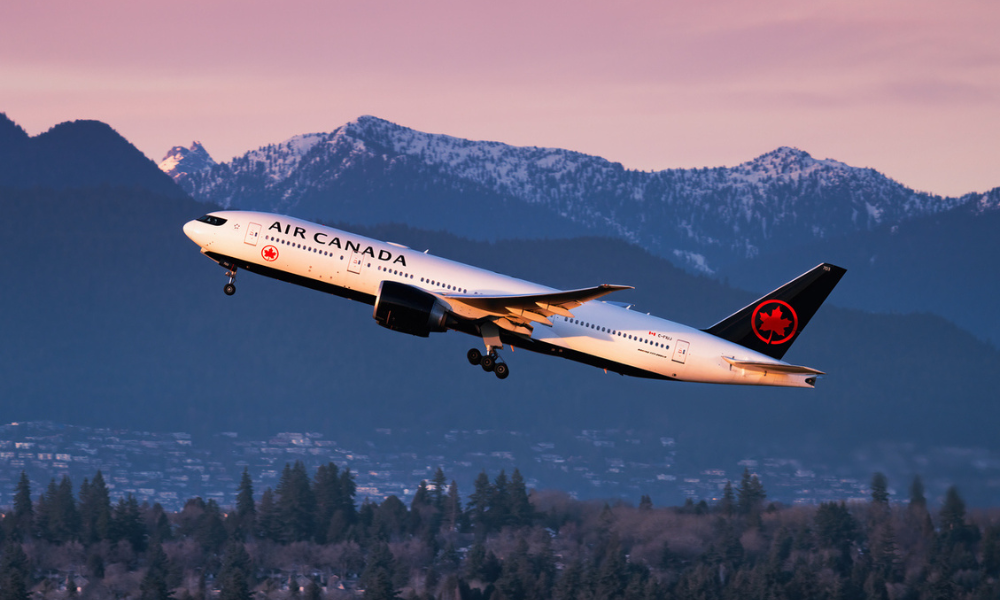Short sellers hit Air Canada as operational costs rise and consumer demand weakens post-pandemic

Short sellers are targeting Canada’s largest publicly traded airline due to rising operational costs and weaker post-pandemic consumer demand, reports BNN Bloomberg.
In early July, Air Canada’s short interest as a percentage of float reached nearly 19 percent, according to financial data firm S3 Partners LLC.
This rate has more than doubled from 7.4 percent a year earlier, indicating that investors expect the stock to decline further as Canadians allocate more income to cover higher living costs. The current rate is the highest since December 2021, when COVID-19 travel restrictions pushed it to nearly 21 percent.
Air Canada’s shares have dropped 4.7 percent this year, reflecting economic and industry challenges. The stock remains significantly below its pre-pandemic peak of $50.05 (US$36.74) in November 2019.
“Canadian investors are concerned about a slowing economy and potential pilot pay increases during contract negotiations,” said TD Cowen analyst Helane Becker in an email.
Investors predict a tough travel season for airlines, citing a lack of available aircraft and materials, as well as high inflation, which may deter passengers. Despite higher interest rates bringing inflation closer to the 2 percent target, headline inflation rose to 2.9 percent in May, up from 2.7 percent in April.
Statistics Canada’s preliminary economic data suggests slower growth ahead, with gross domestic product rising just 0.1 percent in May, compared to a 0.3 percent increase in April.
Geopolitical uncertainties are also dampening travel demand, according to Royal Bank of Canada economist Claire Fan. An RBC Economics report in June highlighted that while more Canadians are traveling, demand for international tourists visiting Canada remains 10 percent below pre-pandemic levels.
Transat A.T. Inc., another Canadian aerospace company, has faced similar challenges. Its shares have dropped 86 percent since January 2020, before COVID-19 travel restrictions began. Air Canada’s stock has declined 64 percent over the same period.
Air Canada’s growth is threatened by higher labour costs and increased domestic competition.
Its market share has fallen to 48 percent from about 54 percent in 2019, as competitors like WestJet Airlines Ltd. and Porter Airlines Inc. expand their routes, notes Bloomberg Intelligence aerospace and defence analyst Francois Duflot.
“The domestic market is the biggest and most profitable market for Air Canada,” Duflot said. “Everyone is growing, and airlines are really sensitive to this kind of competition and pressure.”
Air Canada, unlike most US carriers, has not yet finalized a new labour agreement with its more than 5,000 pilots. The expiry of a negotiated framework with a mediator on June 1 may lead to a strike vote during the busy summer travel season. Labour and fuel are the industry’s two largest cost drivers.
Analysts view Air Canada as a barometer for the Canadian airline industry. Morningstar Research Services LLC’s aerospace and defence analyst Nicolas Owens recently stated that many North American airline stocks are overvalued, and Air Canada’s lagging performance is not unique.
Owens believes Air Canada, like other airlines, will eventually return to pre-pandemic travel demand levels. “It’s just this dip and rebound that we’re seeing now,” he said.



